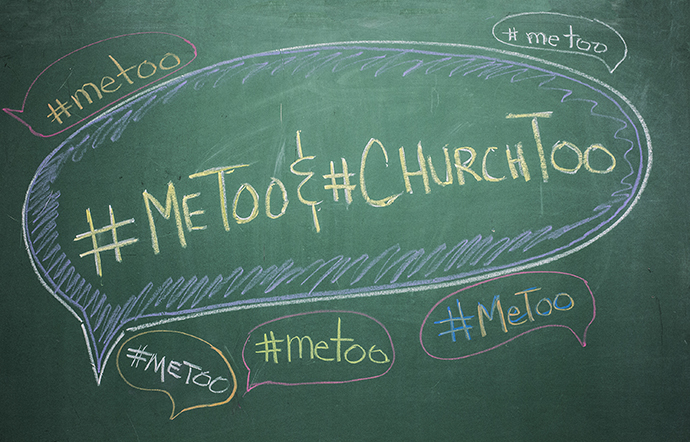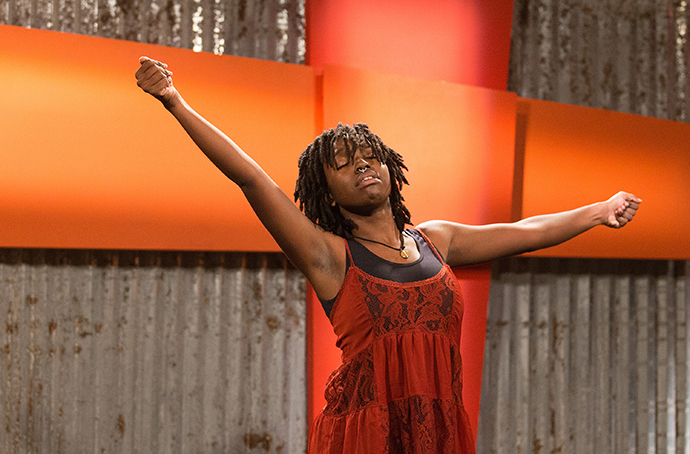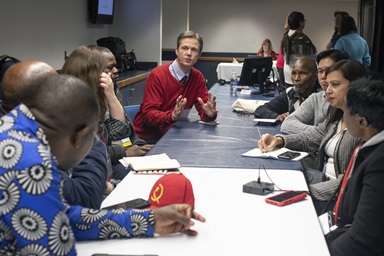The issues that occupy United Methodist advocacy agencies are grabbing headlines these days.
Immigration, sexual equality and racism have stayed on the front pages of secular newspapers, as have health care, the opioid crisis and poverty. Those headlines affect the work of the denomination’s Board of Church and Society, Commission on Religion and Race and Commission on the Status and Role of Women.
Board of Church and Society
“We have not solved war, poverty or the immigration crisis, so many of our priorities for 2017 will continue into 2018,” said the Rev. Susan Henry-Crowe, top executive of the United Methodist Board of Church and Society, the denomination’s Washington-based advocacy agency.
There are 76 statements of principle in the Social Principles, she said. “At the end of 2016, we focused on four: health care, immigration, peacebuilding and poverty.”
The health care focus will shift to issues of addiction and opioids, she added. And the social justice agency also will be emphasizing civic engagement in addition to the four priority issues.
“Every time I am out, I ask people if they are thinking about running for public office, like the school board at local levels as well as state,” she said. “I am encouraging young people to take a more active role in public engagement and encouraging people to vote and to protect the rights of people to vote.”
In countries where the church is present, the agency is equipping United Methodists to advocate in their own social and political contexts.
“We want to grow the number and diversity of United Methodists willing to address injustice at the local, regional, national and global level,” she said.
The agency will continue to work on the revision of the Social Principles. Changes will be brought to the 2020 General Conference.
In 2017, the Board of Church and Society:
- Equipped thousands of United Methodists for action to protect and expand access to quality, affordable health care in the U.S.
- Worked with interagency partners and the United Methodist Immigration Task Force to protect immigrants and refugees.
- Hosted trainings in 12 countries, focused on pressing social issues like maternal health care, peacebuilding and gun violence prevention.
- Engaged people from every annual conference in the U.S. and all the central conferences through education efforts, advocacy opportunities, trainings, seminars and internships.
- Connected with elected officials in nearly every U.S. state regarding issues like nuclear nonproliferation, religious freedom, climate change and international cooperation.
- Reached hundreds of thousands on social media.
The budget for 2018 is $6,874,022.
Commission on the Status and Role of Women

The Council of Bishops and the Commission on the Status and Role of Women want people with allegations of sexual harassment or misconduct to know they will be heard. Photo illustration by Kathleen Barry, UMNS.
Dawn Wiggins Hare, top executive of the Commission on the Status and Role of Women, divides 2017 into before and after the #MeToo Movement.
All year, the women’s commission stayed busy with sexual ethics and sexual harassment prevention training for The United Methodist Church. But the many high-profile sexual harassment news stories, followed by the #MeToo Movement in which women across the U.S. and the world shared through social media that they too had been victimized, made for new receptivity.
“The #MeToo movement has really put a spotlight on the work,” said Hare. “It’s an incredible opportunity for The United Methodist Church to lead and be very visible.”
In 2017, a Connectional Table grant made possible sexual ethics training for pastors and churches in Mozambique, South Africa and Zambia. The commission also did such training for the Methodist Church of Peru, at its bishop’s request.
Hare noted that she and her staff were invited by the Council of Bishops to do training on integrity and ministry, and on how bishops can best respond to complaints of sexual misconduct. The council and commission recently released a statement encouraging the reporting of sexual harassment and other forms of sexual misconduct, including within the church.
The joint statement directly references the #MeToo and #ChurchToo movements.
Ahead of #MeToo, the commission did a survey on sexual harassment within The United Methodist Church. Hare described the response rate as “phenomenal.”
The survey, released Jan. 30, found that reported incidents of sexual harassment within The United Methodist Church have decreased in recent years. The one exception in the summary of “Sexual Misconduct in The United Methodist Church: U.S. Report” was for seminary students, where reported incidents increased.
Hare said that the commission will be working to devise a first-ever such survey for parts of the central conferences.
“Do No Harm” is a major quadrennial training event the commission does to promote prevention of (and effective response to) sexual harassment. The next will be Oct. 11-13, 2018, in San Antonio, Texas.
“We’re asking each bishop to send a team,” Hare said.
As part of its focus on equality for women, the commission last year translated into more languages and distributed more broadly a resource titled “Women Called to Ministry.”
The commission had pushed for approval at General Conference 2016 a church constitution amendment that would add “gender” to “race” and other categories in a paragraph dealing with non-discrimination. The amendment passed, but has to be ratified through votes in the annual conferences, and Hare said the commission was making the case for that through 2017.
Last year also saw the commission publish a study on gender composition and compensation among United Methodist clergy in the U.S. The study found that, experience and other factors being roughly equal, clergywomen average $4,000 less in pay annually than clergymen.
Hare said that in March 2018, Women’s History Month, the commission will highlight women’s contributions to The United Methodist Church. And she knows whom she’d like to see get more love.
“So many times we celebrate the efforts of clergy and clergywomen,” Hare said. “I just want to continue to raise up the importance of laywomen and their work.”
The commission’s 2018 spending plan is for just over $1 million.
Commission on Religion and Race

Nia Shand, 23, is among young United Methodists giving voice to their struggles and hopes for the church in the General Commission on Religion and Race’s Vital Conversations video series, taped at United Methodist Communications in Nashville, Tenn. The third part of the series debuted Feb. 7, 2017. File photo by Mike DuBose, UMNS.
Erin Hawkins, top executive of the Commission on Religion and Race, considers her agency’s goals to be ongoing, but felt that it met those goals in 2017.
“Our primary goals focus on engagement,” she said, “connecting more with local churches and provide resources that impact them, and expanding that connection to the church outside the U.S.”
Some of the resources the commission is developing include a manual on cross-racial/cross-cultural appointments for clergy and laity, a book on developing multicultural ministry, and a web-training series featuring people from local churches talking about their best practices reaching across racial and cultural lines.
Hawkins said that conversations with bishops and their cabinets revealed that the most challenging issue for them is an increasing need to make cross-racial/cross-cultural appointments, but felt a lack of resources to help clergy or congregations.
Hawkins pointed out that, despite its name, the work of the agency isn’t limited to issues of race. When training churches on being inclusive in their congregations and the surrounding community, that may center more on socioeconomic status or generational divides.
“I want local churches to know we are there to support them in whatever context they find themselves and help them build bridges across those lines of difference to be effective in ministry with all people,” she said.
To support the goal of expanding its work to the central conferences, Religion and Race held a roundtable in the Philippines where all three active bishops and their teams spent three days in conversation about how the agency’s work is applicable to ministry settings there.
“There was a lot of conversation and ministry planning about developing ministries to indigenous communities and we launched a more sustained plan for Religion and Race to find a contextual voice in the Philippines,” Hawkins said, adding that a goal for 2018 is to have a similar event in Europe.
She described a “train the trainer” program for the U.S. and each central conference so people are raising up leadership in their own areas.
Another priority for the agency in 2018 is celebrating its own 50th anniversary, along with the 50th anniversary of the merger that created The United Methodist Church. The month of April will kick off a year of observance of 50 years of racial and cultural ministry in the denomination.
The commission’s operating budget for 2017 was approximately $3 million.
Next: Membership agencies focus on advocacy, connections.
UMNS staff writers Kathy L. Gilbert, Joey Butler and Sam Hodges wrote this story. Contact them at (615) 742-5470 or [email protected]. To read more United Methodist news, subscribe to the free Daily or Weekly Digests.
Like what you're reading? Support the ministry of UM News! Your support ensures the latest denominational news, dynamic stories and informative articles will continue to connect our global community. Make a tax-deductible donation at ResourceUMC.org/GiveUMCom.




